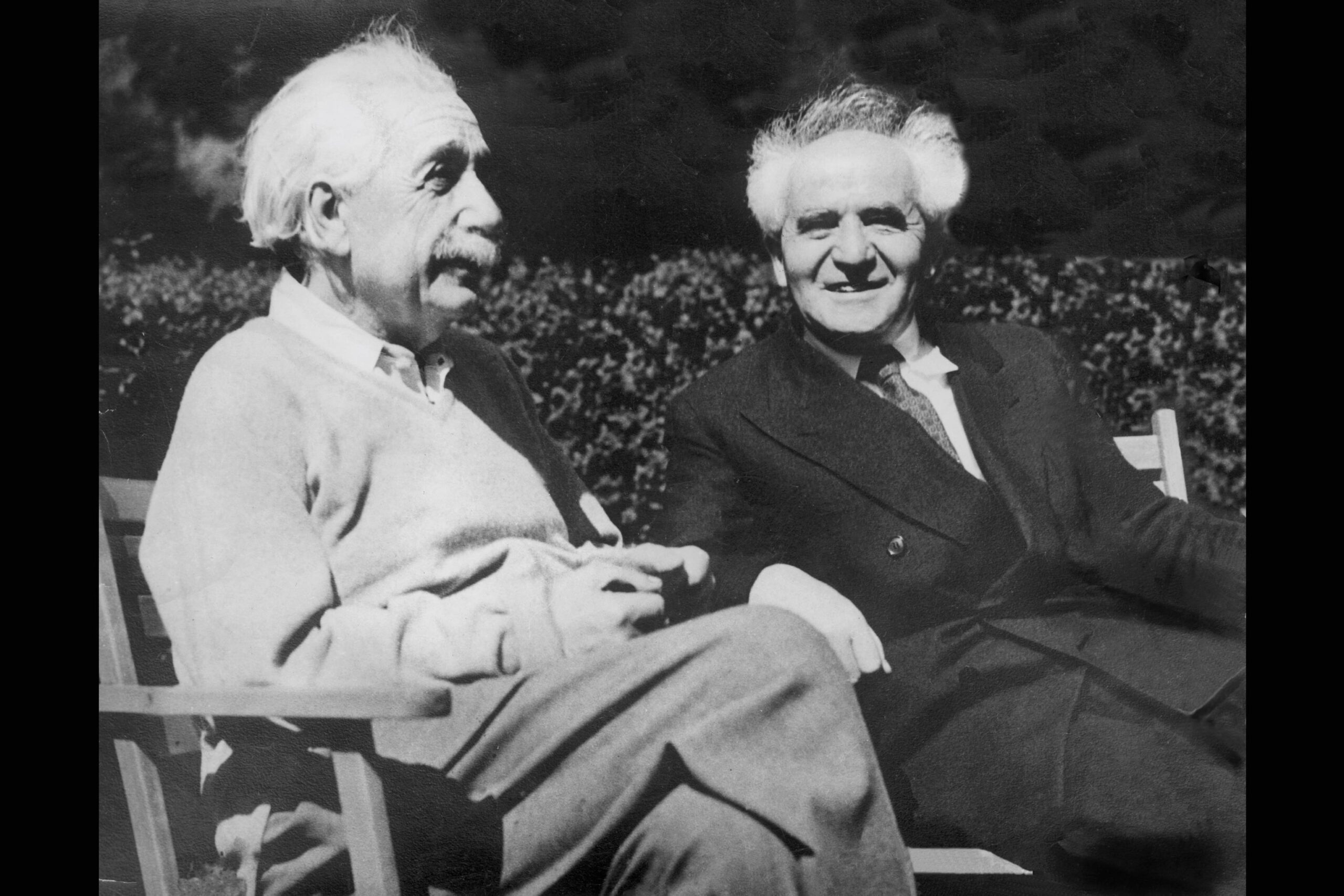
April 18, 1955
While gaining universal fame for his accomplishments and contributions to the field of physics, Albert Einstein was also an avowed Zionist and supporter of the State of Israel. Despite an opposition to militant forms of nationalism, but after witnessing a series of attacks against Jews in Germany, Einstein was drawn to Zionism following World War I.
Writing in 1921, Einstein articulated his view of Zionism, “I am a national Jew in the sense that I demand the preservation of the Jewish nationality as of every other. I look upon Jewish nationality as a fact, and I think that every Jew ought to come to definite conclusions on Jewish questions on the basis of this fact. I regard the growth of Jewish self-assertion as being in the interests of non-Jews as well as of Jews. That was the main motive of my joining the Zionist movement. For me Zionism is not merely a question of colonization. The Jewish nation is a living thing, and the sentiment of Jewish nationalism must be developed both in Palestine and everywhere else.” (Albert Einstein, About Zionism: Speeches and Letters, translated and edited by Leon Simon, NY: The Macmillan Company, 1931, p. 41)
Einstein soon developed a friendship with Zionist leader Chaim Weizmann who asked Einstein to accompany him and Zionist leader (and eventual head of the Jewish National Fund) Menachem Ussishkin on a fundraising tour of the United States in March 1921. Their goal was to raise funds for constructing the proposed Hebrew University in Jerusalem. It was Einstein’s first visit to the United States. In 1923 he visited Palestine, where he delivered the inaugural lecture at the yet unbuilt Hebrew University.
In 1952, following Weizmann’s death, David Ben-Gurion (shown in the photo with Einstein) offered Einstein the Presidency of the State of Israel. The professor declined citing his lack of aptitude and experience needed for the position. Einstein passed away on April 18, 1955.
